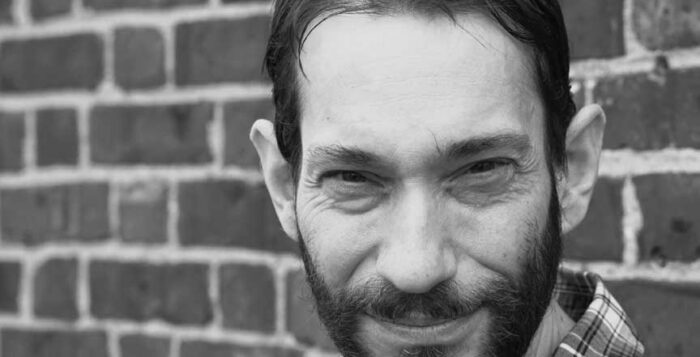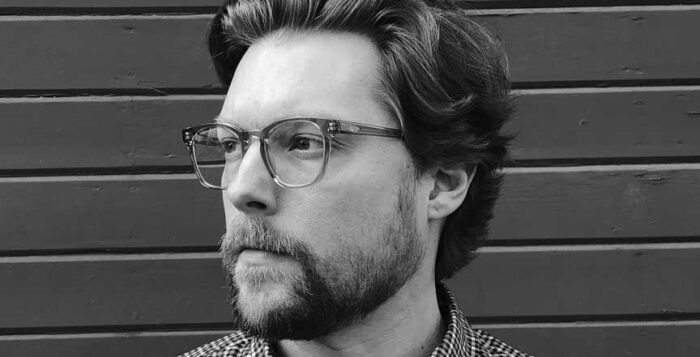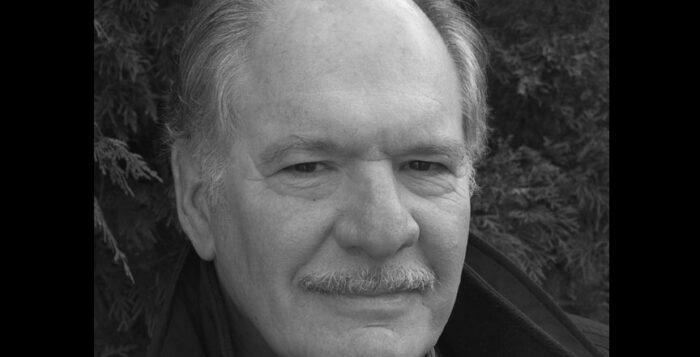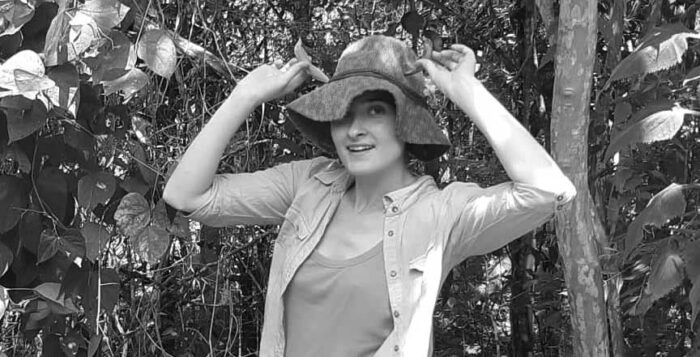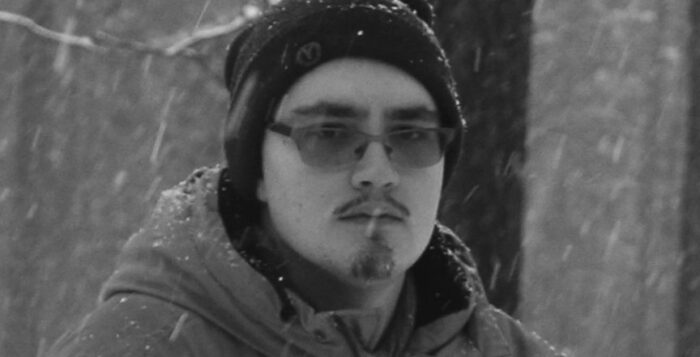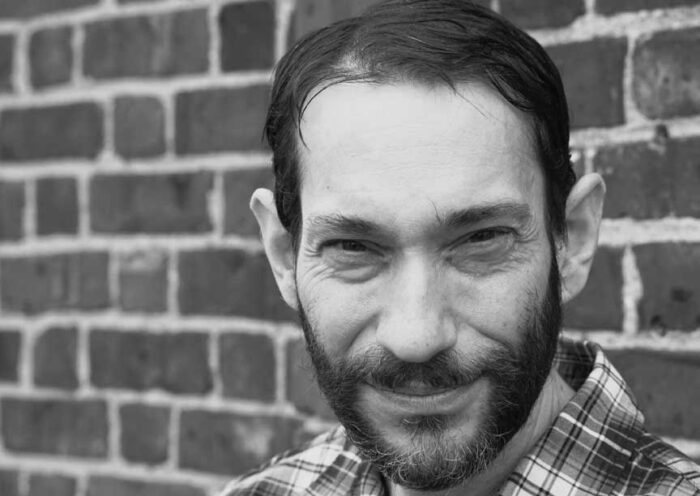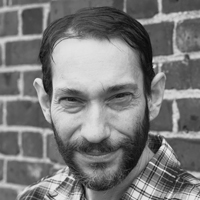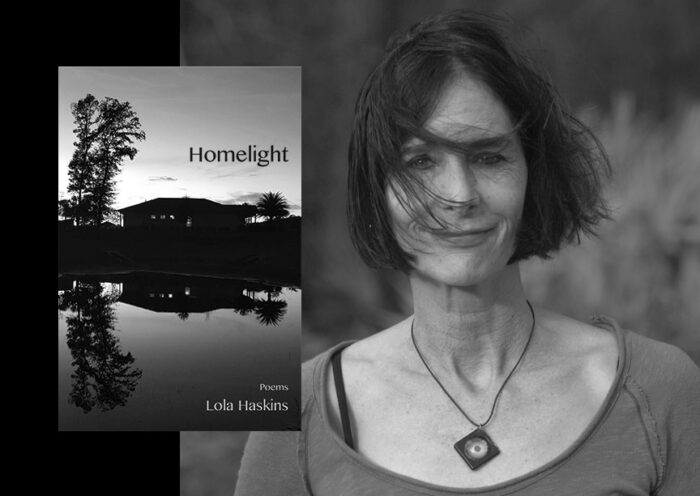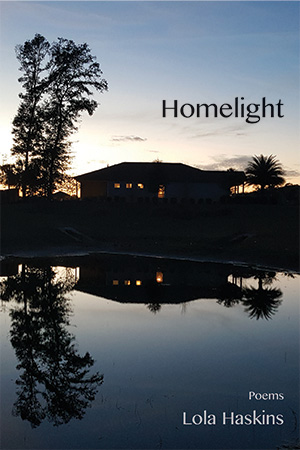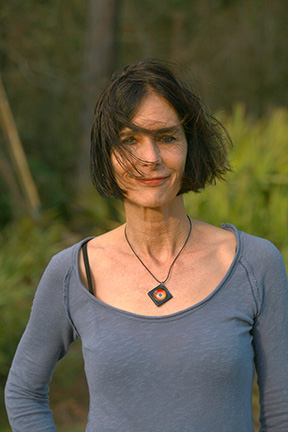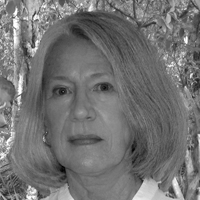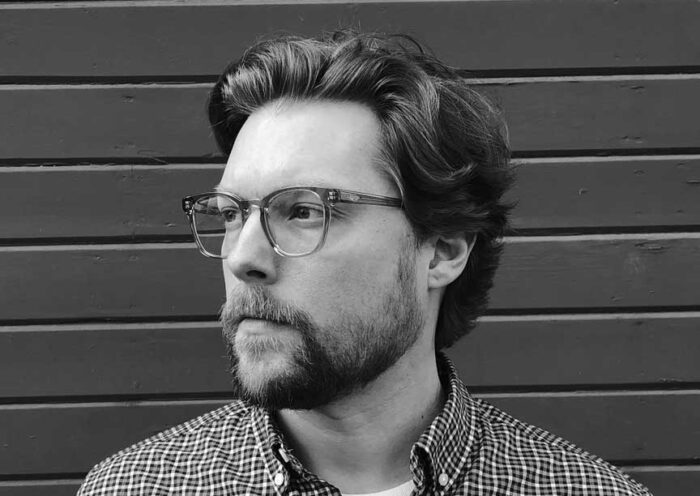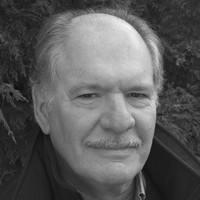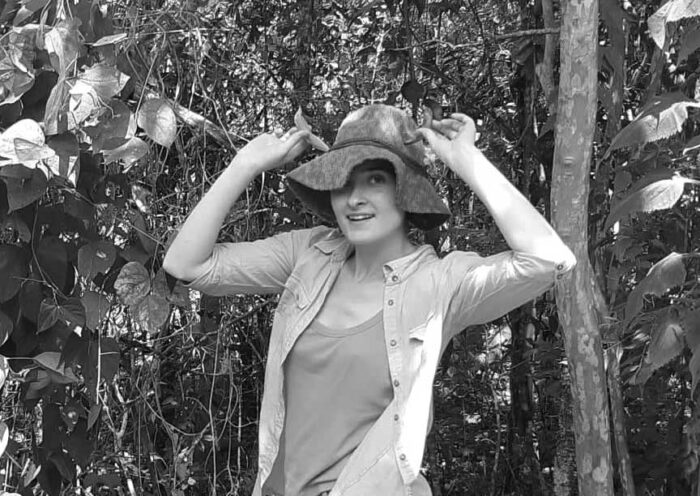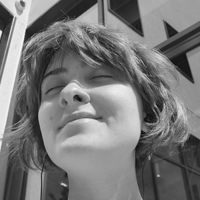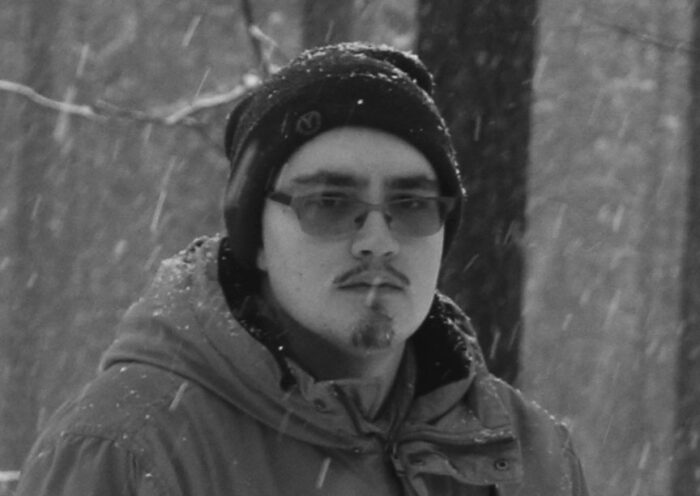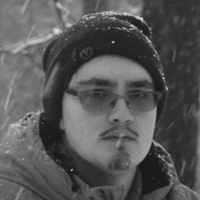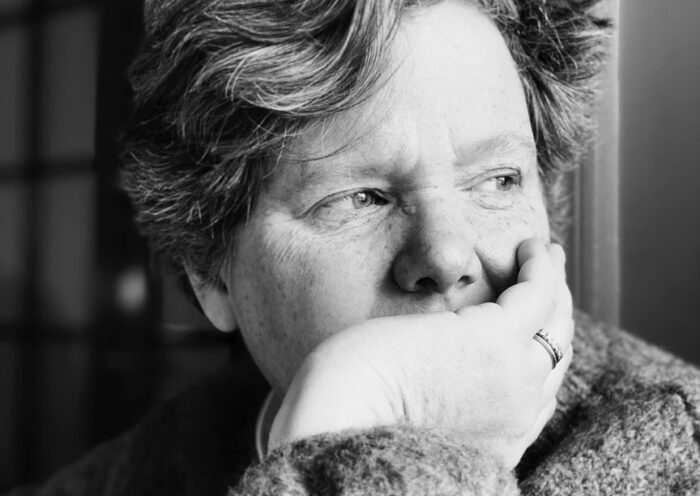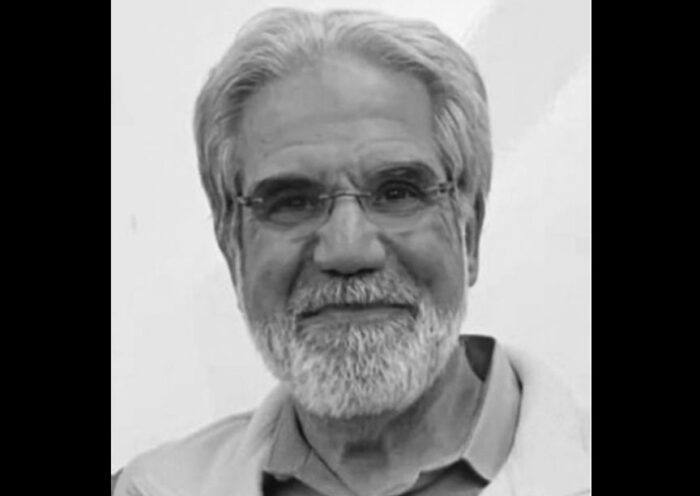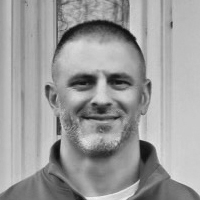MY LIFE BY DISNEY
by Dana Roeser
At twilight
when I was gathering
newly sprouted arugula
in the backyard garden, a cardinal
sang to me
from the high limb of
an ancient elm. It was a sweet
song
that I tried
to answer. I apologized again
for Alice killing the robin
because the more I think of it
the more I think she did
do in Laura.
A day after the murder
I pulled up in my dirt-streaked Toyota
sobbing so hard
I soaked a box of Kleenex.
I could hardly get up the steps.
Alice was inconvenienced, always
having to use the back door. Was she inconvenienced
by my caring about the robin?
* * *
I will not, I cannot,
look in the nest
high up under the eave
of my house.
The babes in the woods
clinging to each other
in the cushiony bed—frozen with their mouths open—
their rubbery beaks—
Or were they still perfect eggs—unhatched—
also frozen—
b/c the mother left
against her will?
I’ll never look at Alice the same. And truly I
don’t know she was the perpetrator.
The one time that I left her out
when I pulled away.
I knew I’d be back in a couple hours.
I knew the weather was sunny
and hospitable.
Alice stared at me
from the end of the driveway
because she likes to go in when I’m out.
But I was embarrassed
being already seven minutes
late for Sarah, and I didn’t want
to open my car door,
disrupt the bird.
Immaturity is my humility—but that’s for another poem—or no poem.
(Ask the cardinal.)
The bird calls are a relay, a transference.
They know each other
and they all have witnessed it.
The father, somewhere, witnessed.
That is the only explanation for the disappearance of
the dogged mother.
She sat on that nest, breast puffed, eyes bulging
and inscrutable,
her tail jutting out like a stick
through cold rain—she was under the eave, I watched her from
little arched windows at
the top of the front door. It was ridiculous,
the weather.
We had more than one night
at freezing. (I was busy then covering the
baby greens with bed clothes.)
The neighbor cats
were not clued in, had no
territorial vendetta, though they, especially lithe Horace, may
have been called in as accomplices.
Tonight. I had come from a twelve-step meeting
where people were kind.
I went to one at noon too—I said just who did I think I was?
Mother-goose? A bird-whisperer? Yet,
Beach, at Clay Knob Stable today, was also kind,
soft, grabbing for apple pieces with
his velvety, oversized lips—and disappointed,
I’m sure, that we didn’t get to do our after-
ride ritual (Christy turned him out
for me) because I had to run
to the car before 4 p.m. to do a financial thing
on the phone, the stock market
had supposedly rallied.
My ex-husband told me
today was a good day.
I have no income to speak of, as I am old.
I am spending down the funds that came to me
in the divorce. I am almost five years
older than my former husband.
He still has a job.
Income from the part-time job I did have this semester,
according to my accountant,
actually cost
me money.
Do the math.
Weep.
How in the hell
did I mislay this man
and my family?
Why can’t I visualize
my Canadian boyfriend
when he is not here?
My dear Canadian boyfriend who actually said on
Messenger this week:
If we break up (or words
to that effect), if I have to get a girlfriend
(online/yoga class/
coffee shop, etc.)
because I can’t wait any longer
for us to be together,
“I will always interact with you.”
Jesus Christ on a bright purple crutch!!!!
And then on my way home from my circuitous
“self-care” travels today,
I realized our relationship
was another victim
of my “magical thinking.” As durable
as Sleeping Beauty
or Snow White—their chirping, carefully-colored birds
and chipmunks—
bursting into song . . .
while Laura is
carefully extracting worms
from my little as-yet-untilled strip garden
between house
and driveway
under the nest—
the cat’s
going to get her
with lightning speed,
with sharp claws.
O HOLY WEEK, O HOLY SATURDAY
Black Saturday Jesus is in the tomb
germinating and the people
across the street are rocking out
to some kind of grinding repetitive
hip hop, interspersed with Bollywood.
We are college students
We are going to be having a loud
party this afternoon
and we deserve to enjoy college. So Jesus
hung in his cocoon while
I burned a fire, opened all the windows,
felt suicidal and went through
mountains of random bills catalogs manuscripts
and papers and ultimately
raked through cat litter, took it out with garbage,
recycling, and compost
all to the grinding neighborhood beat. Kept trying
to figure out what they could
do to it. Not sex. Not work. Maybe shouting
at each other at a party, clambering over
each other, dominating
on their huge wooden oversized chair
in the back yard or in the ever-repeating
hacky sack or foosball game.
What is really the use of trying
to win at divorce counseling
when you flunked marriage counseling
and your ex-husband has a personality
disorder? Patti my beautiful, stoic
Buddhist AA
sponsor tried to say.
When you already lost
spectacularly.
What is your expectation, I believe
she said. Also, maybe implicitly, well
NVM implicitly. Let’s just say
Patti knows me, has known me. I’m surprised
she speaks to me.
Jesus was still hatching while this evening I rolled
my cart through Fresh Thyme. Some appearing-
families, endless sturdy children rolling
in and out of carts;
the stringy-haired
tender-looking Goth woman in
the soup aisle, the very thin wan blond
woman with whom I conferred over the
sushi case. Only California Roll
remained. She put hers back,
and, later,
I did mine. Bland tonight
even worse tomorrow and what was I doing
eating all that white rice. Couple other
random people. Somebody by the Medjool organic
dates, I think. Maybe a couple near the
remains of the broccoli or bok choy. Produce
waning. We were all convivial.
We were all flunking Easter.
At every turn, the handle of my cart
was shocking me.
After the checker saw the absurdly
expensive “natural,” with-the-shiny-foil
packaging, Sierra-something,
couture cat food I bought
and I told her how much better
my cats’ coats were, she and I
went over her mini-labradoodle
stud’s diet and coat
supplement. Apparently
his coat is bedraggled. He’s still picked
up by the breeder twice a month
to do his thing, but it appears that
it’s wearing him out—all
those different women—or that was
my guess. I told her I wanted
a dog, which made us both
happy, me b/c it would
get me out of the man thing.
The loneliness thing.
All this while a line of people
formed behind me and random
groceries were plowing
forward on the belt.
Driving home
I thought about how sad Beach had seemed
at the barn yesterday, grounded
in his stall with his hurt foot and the dear
young person, who must be
home-schooled, far too innocent at age
seventeen to be attending
any public high school even
in rural Indiana.
Her fresh face in my face
asking me all sorts of questions about
Beach, about patient, shark-faced Indy whom
I’d ridden that day instead of Beach,
about posting the trot,
and so on. And today
at Fresh Thyme
the other young person maybe
the same age or a bit older
going on about the mini-labradoodle
set up. They sort of lease the dog, foster
him, whatever.
In all seriousness, I think these
dear earnest young people are what
Jesus is thinking about there
in the dark. They’re inheriting rampant
porn, a frying earth, a parent-
and grandparent-killing pandemic. Oh,
and a brutal war and genocide
on television. & that other thing.
My raspberries at some point must’ve
gotten loose, were rolling all over the grocery
bag apparently, because several
dropped into my yard when I got home
and I just popped them all
in my mouth. All that abundance. All that
freshness on the young
people’s faces.
Jesus, think hard. Meditate hard.
As previously stated, I don’t know how
Patti can stand me, and come to
think of it, I’m not sure she can. We talked
about meditation. A woman she reads
who writes about Zen and the twelve steps.
Irish formerly-Catholic Patti said “I hate Easter”
and I must say it was something of a relief.
I’d neglected to say I’d wanted
to write to my hot convert friend
up in Toledo
and say Happy Easter,
that I missed the big bonfire at my former church
in which we threw
our palms from the week before;
our little candles lit, blown out,
and re-lit in the dark sanctuary. The Litany of
the Saints, so beautiful, to which I’d sobbed every year—
including three years ago—not two hours
before, in our living room, exhausted—
I’d been to a student event
with my husband before the service—
and the Vigil had lasted three and a half
hours—when my husband told me he was
leaving me.
The week after that I went back
to Mass, not knowing where else
to take my outsized pain—it was packed
and a woman next to me gave me
her handkerchief
as my sobbing was getting messy—
and I was convinced it was a message
from my dead father who always gave
me a hankie and whose clean, folded handkerchiefs
looked just like hers.
I could hardly get out of the church after
Mass or through the ensuing
days in which my husband vaguely confessed
about two other women and precisely
set about organizing his move which happened
ten days later.
How many times had I stood
in that parking lot before that fire
with my husband and sometimes one
or the other, or both, of our daughters?
And then gone
in to stand in the dark sanctuary waiting
for our little white candles
in the paper cones to be lit hand to
hand from the priest’s
Pascal candle. Staying standing
for the long, long reading
of Genesis where
God divided the light
from the darkness and Exodus, the
Lord in the pillar of fire
and cloud. Oh how I wish I were there now.
I heard we are having
yet another hard frost tonight
—though it is April—
and again I congratulate myself
for not planting anything yet.
I’m sure it is beautiful there at the garden
under the dark, pink full moon.
Holy Mary, mother of God, pray for us.
Saint Michael, pray for us.
Holy Angels of God . . . .
The frost drops tonight
like stars.
Perfect hairy red raspberries tumbling
out of the back door of my car
and into the yard.
HAPPY DAYS
Belle hiding in the narrow brush jump
covered with red faux-brick paper. (Note to both horse and rider:
the thing will not give.)
Her fluffy head
and fat tail coming out of the open top. Frustrated Cohen the
black pit bull cross
hanging around her licking her face.
Christy says Let me get a rope for the dog
so I can rescue the cat
and Roxy can jump the brush jump.
I’m trotting around on Beach. I had to do energy work—
my guestimate of Reiki—
on the horse before I went out there. Seriously.
I didn’t know that that was what I was doing.
But he lowered his head and let his eyelashes drop
when I stroked
the bone behind his right ear.
Also looked at me dreamily
when I kissed him square on the face.
Riders don’t always realize that horses
need reassurance. The day before’s lesson, C. admitted,
“went south.” We were scraping mud
off Beach from either side.
She thought 13-year-old Suzette could handle him,
but instead he veered right
and broke into a canter down
the rail—
maybe she poked him with her heel—
Suzettte ended up coming off INTO the wall of the indoor
breaking off a tooth—and fracturing her jaw.
Still she had the presence of mind,
Christy said, to ask for someone to look for
her tooth. (Which I did not know
until today was even
a “thing.” Those who watch
hockey know about it?)
I’m sure the mom was not pleased, but
the liability waiver
—which refers to the “inherent risks of equine activities”
and “death”—is in huge block letters on
the tack room door.
And everybody signs a copy.
My job today was to calm Beach down
enough to get him to go over the small jumps
without running out. (Or, God forbid,
into one of the hayfields stretching in
every direction.)
Lily, another beginner, had helped him to realize
that running out might be an attractive option.
The cat hiding in the brush jump, with the dog sniffing her face
reminded me of how John, about age 12, used to hold
Douglas, age 10, down on the floor and I would slap him.
Then when Mother appeared, John and I would lie.
I am getting ready to confront my ex-husband
in divorce counseling, to let him know
how much he hurt me. Is that not the most laughable
thing you ever heard? Like a person who
pursued two
people while holding my hand
in “marriage therapy,” as he called it,
would suddenly
be capable of compassion?
Ha ha ha.
The cat’s head rotating around above the box reminded
me of the woman’s head in Happy Days
the Beckett play my boyfriend lent me.
Honestly, the grief over our uncertain future
is tormenting each of us
in different ways. He can’t get across the Canadian/U.S. border
and I am a basket case about going up there.
My love bleeds and I go very blank. If I’m going to
have excision surgery I need to prepare for it.
I need energy work. On myself. Courage to
get dipped in acid
again.
I DO NOT visualize myself as Winnie in
Happy Days, the tiny circuit of toothbrush,
toothpaste, and comb—
buried to her waist in an earthen mound
beneath a “trompe-l’oeil backcloth” of
“unbroken plain and sky.” A black bag and
parasol beside her. When will “Willie,”
lying asleep
somewhere behind her, speak?
Brush and comb
the hair if it has not
been done or trim the nails
if they are in need of trimming. . . .
This is going to be another happy day!
REVOLVING DOOR OF SPRING: CHECK ON ME
Trina T. has gone back out.
It was all over WLFI.
Two OWIs in twenty-four hours.
First she got hung up on
a snow drift, drunk, then motored off
from the officer
who tried to help her. Then she
had an accident. “You should
have seen her mug shot,” Emily said,
“and people were
saying things like ‘Lafayette’s finest’
in the comment
section. Brandi and I had to
defend her.”
March 11th, apparently,
is the day my father will be released from
the hospital. On his 93rd
birthday, his blood pressure was 69
over 40.
“I always think
March 11th is the day we start
to ride outside,” Christy says.
“We could probably ride in the outdoor
today but we wouldn’t
be able to get there. All the snow is
melting—the ground
is soaked.” March 11th is three days from
today. No one knows if Trina has
been bailed out.
Her husband had just gotten
out of prison which “could
have been a factor.”
That train accident
was by my rather obvious
deduction a suicide. The train
was coming from the west
and Rachel just rolled
her truck slowly onto the track.
Three-column obituary. An engineer
who traveled the world, rode
and showed a horse
named Orion, loved guinea pigs, pottery
(which she made), sunflowers.
In other words, who lived eighty
lives to my one. Christy
and Josie knew her. I heard about it
at the barn when I was
having my lesson. Walking and trotting,
always getting yelled at,
always waiting for the chance
to jump (when I was young, it was “hunt”).
A hanger-on at the barn—with ten-year-old
cohorts, college girl
stable helpers. “She, the witness, observed
and heard the train
coming from the west
and saw the pickup truck
slowly edge up onto the tracks,” said the
Chief Deputy.
When Doug heard
about Dad, via my voice mail, yesterday,
it took eight hours for
him to get back to me. He was
talking really slow. I wondered
how much he’d been
drinking. I could tell
he didn’t feel up to calling Thea and sorting
out the visiting rotation.
When they
told me Tammy died, I had
to look up her obituary picture
to remember who she was. Emily,
recently relapsed and on the run
from CPS (having been caught driving drunk
with her child), was the one
who found her. When you endanger
children as much as she has, Child
Protection Services becomes CPS. Emily had tried
to call Tammy to check on her
but she didn’t pick up. When
Emily went over to check on her, she
found her naked on the
bed, fresh—or not—from the
shower. Emily flashed back to her mother’s
suicide by alcohol overdose,
replete with note, on her ninth birthday,
and then tried to kill herself two and
a half weeks later. It was Tammy’s sister
who called to check
and upon hearing Emily’s garbled voice
called 911. She had been very, very
thorough in her overdose, though I can’t
remember right now what
combination of drugs and alcohol she told
me she used.
Arlene at the nursing home
was perfectly cheerful about
my father last night, said she
only wished they’d caught it sooner
so he could have avoided going
to the hospital.
He sounds
like he is trying
to speak from a deep
well. Thea said on the phone
that when she arrived she found
him “unresponsive,” deploying
a medical default/buzz word. I knew
it would be okay, though, because
the night nurse “Jackie” last night
on the phone said she was right
outside his door, had just checked on him, and
that he was “adorable.”
A man in the my
home meeting about
whom I’ve been nursing
some kind of an obsession asked me
for my phone number and I nearly
died. I kept thinking, Is this a date? I gave
him my number and my last
name and he gave me his. I know what it was
really for. I know we had
more important things to do
in that room than
have a Valentine’s dance. I think about him,
how raw and in pain he seemed a
month or two ago, how I was worried
he’d go back out
(but he didn’t and that was all
that mattered).
When Andy refused
to watch Lola, and Mia was paranoid,
I told her to ask
the reason. She ended up
sobbing to him on the phone. Then
someone she knew from Lola’s school
saw Mia in Target in the hour
before the meeting and offered to take her so Mia
could have some peace.
Andy said it was just work that
was bothering him. Mia’s friend
texted a photo of Lola at Tractor Supply—
or was it Rural King?
I didn’t ask the man why he wanted
my number. I did not want
to end up sobbing.
Doug,
it’s Daylight Savings
Time, drag yourself up out of that
hole you’re in. Dad is not dead.
Let’s work on his obituary while there’s
still time. I’ll tell you
when it’s otherwise. Slim, in your
gold shoes, carry on,
keep deploying your charm. Mia,
tell the truth to Andy. Emily, one day
at a time, keep coming back. I’ll call you,
Doug, and tell you when to
enter the hole for good. Meanwhile, pick up
your phone once every
thousand years. Let me check on you.
BIO
Dana Roeser’s fourth book, All Transparent Things Need Thundershirts, won the Wilder Prize at Two Sylvias Press and was published in September 2019. Her previous books won the Juniper Prize and the Samuel French Morse Prize (twice). She was a recipient of the GLCA New Writers Award, an NEA Fellowship, a Pushcart Prize, and several other awards and residencies. Recent work has appeared, or is forthcoming, in Poem-a-Day, The Glacier, North American Review, DIAGRAM, Pleiades, Guesthouse, Barrow Street, Laurel Review, and others. For more information, please see www.danaroeser.com.




